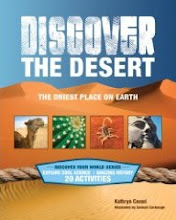
Do you know what you want to be when you grow up? A lot of kids (and even some of us adults!) could use some help figuring out that important question. In the old days, you could go to the school guidance counselor to take an aptitude test. After answering some multiple choice questions about your interests, strengths and personality (“Are you prone to (A) exploring the possibilities or (B) nailing things down?”), you would find out whether you were hairdresser or rocket scientist material. Another tactic was to thumb through an enormous volume called the OOH – Occupational Outlook Handbook. Today you don’t need an appointment with your guidance counselor to start your career exploration, because many of these tools are available on the Internet. Unfortunately, they’re not always free, and they can be complicated to use. But if you’re just looking for ideas and suggestions – not a detailed, personalized analysis -- there are a few good places to begin your search for the job path that will suit you best.
The OOH, put out by the U.S. Department of Labor’s Bureau of Labor Statistics, has descriptions of hundreds of different occupations. It tells you what the job is like, education and training requirements, how much it pays, and whether the need for people in that job is growing, staying the same, or shrinking. And not only is the online version less of a strain on the shoulders than the hardcopy, it’s also easier to browse, thanks to the website’s search features. It also has links to professional organizations and other places where you can find out more about the job that interests you. Not everything about it is high-tech, though. Like the book, the website’s information is only updated every two years, so some statistics in the 2006-2007 edition go back to 2004 – eons when it comes to some areas of the job market. But the BLS website does offer archives of the Occupational Outlook Quarterly magazine (the most recent being Summer 2007) and other resources. There’s also a well-designed kids’ section with a little less detail and links back to the main OOH.
Many professional organizations themselves have kids’ sections with information about different specialties and how to enter the field, such as Ocean Explorer, Young Eagles (aviation) and the US Dept. of Agriculture.
For general information, the
And if you’re curious about online aptitude tests but don’t want to shell out the subscription fee, there are a couple sample tests you can try.
Remember, take any career aptitude tests with a grain of salt. I tried three different surveys, and came up with three different versions of what I’d like best! Experts say the most useful thing about interest assessments is the possibility they’ll point you in some unexpected directions. That perfect career is out there – so get looking!
